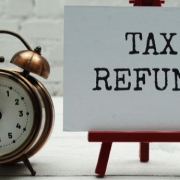How To Protect Your Digital Funds From Hackers
 Millions of consumers are moving away from traditional banking methods and trading in cash and credit cards for more convenient digital payment alternatives.
Millions of consumers are moving away from traditional banking methods and trading in cash and credit cards for more convenient digital payment alternatives.
In fact, a 2016 survey on the rise of digital wallets conducted by Finder.com, a comparison platform and information service, found that over 2 in 5 of Americans have used a digital wallet such as Venmo, Google Wallet and Apple Passbook to send or receive money. What’s more, more than half of those surveyed reported using their digital wallet more than any other means for transferring money, such as online banking, checks or ATMs.
As a growing number of consumers adopt digital financial tools, it’s become critical to factor in the potential risk of cyberattacks. This is especially important given that the number of data breaches in the U.S. alone jumped over 29 percent last year, according to a report from the Identity Theft Resource Center and data risk management company CyberScout.
Robert Siciliano, a security analyst at the virtual private network service provider Hotspot Shield, says that consumers need not worry about potential vulnerabilities in the hardware or software of the banking and payment apps or sites, because they use multilayered security to block hackers. On the other hand, he points to the users of these digital tools as an easy target for hackers.
“The users of these apps are unfortunately the path of the least resistance for criminals,” Siciliano says. “Users often overlook the important steps needed to keep their mobile devices and account details secure, which ultimately opens up their personal credentials and secure accounts to fraud.”
The summertime is an especially important period for consumers to be mindful of their digital transactions as distractions from seasonal activities and travel often keep people from checking their accounts and scanning for potential fraudulent activity. Luckily, there are several steps consumers can take to keep their money protected. Read on to learn how you can keep your digital funds safe.
Create Strong Passwords
Given that there was a 44.7 percent increase in data breaches in 2017 from the record-breaking figures in 2016, as reported by the Identity Theft Center, a nonprofit organization, criminals may have access to a consumer’s personal information that can help them crack passwords. Using a pet’s name or child’s birthday, for example, may be easy to hack through stolen data. Therefore, it’s important to create complex passwords using a series of upper and lowercase letters, numbers and symbols. What’s more, Siciliano recommends using a different password for different accounts to further mitigate cyberattacks and switching passwords regularly.
Password-Protect Your Mobile Device
Should your mobile device get lost or stolen, thieves can access sensitive information and gain access to financial accounts through apps. Using a password to protect your mobile device is imperative, Siciliano says. It’s also important to log out of banking platforms and other financial apps.
Set Up Two-Factor Authentication
An important step to deter hackers from accessing account information is setting up two-factor authentication. This works as an added layer of protection and requires an extra step in the sign-in process, where users must reconfirm their identity. For example, users may get a text message with a one-time-use password to enter as a second factor of authentication after signing into an app or website, Siciliano says. Though it can be a bit tedious, it reduces fraud risks significantly, he adds.
Link Digital Accounts To A Credit Card
While many consumers opt to link financial apps to their bank account or debit card, a credit card is often a better option to benefit from multiple layers of protection.
“If a fraudulent charge hits your credit card, your bank account is not impacted,” says Matt Meyer, vice president of IT and chief intelligence officer of BrightStar Credit Union. “Credit cards typically have a quick and efficient dispute system that issues provisional credit. With a debit card dispute, funds might not be returned by the financial institution until a preliminary investigation is done and the provisional funds may be insufficient.Some institutions also use debit cards as a form of authentication and a compromised card could lead to a complete account take over.”
Only Download Approved Apps
Do not download apps from third parties that you are unfamiliar with, Siciliano cautions. Only download those that have been approved by Google Play or Apple iTunes. And, if you are using an app that looks questionable, delete it.
Check Accounts Regularly
The easier mobile financial tools make our lives, the lazier we become in checking account activity. However, this added convenience can pose a serious threat in detecting fraud early on and mitigating damage and theft. Ian McClarty, president of phoenixNAP, a global IT infrastructure provider that focuses on performance, availability and security, says it’s important to review account activity often, on a daily or weekly basis. McClarty suggests setting automatic notifications on bank and credit cards that can signal when transactions have posted in real time, allowing you to spot fraudulent activity immediately.
Use Secure Networks
Free Wi-Fi is great, but such unsecured networks found at coffee shops, bookstores, airport terminals and hotel lobbies allow potential scammers to hack their way into your system, leaving sensitive information and banking credentials vulnerable to theft. Whenever you use a mobile payment app, banking site or any other digital financial tool, avoid using networks that you do not know or have control over and opt for secured networks, or use your mobile data when you’re on the go, McClarty advises.
Beware Of Financial Scams
Phishing is a fraudulent attempt at stealing personal banking information and may arrive in the form of an email that looks like it came from your financial institution, perhaps asking you to verify personal details or click on a link to enter security information. In these cases, experts say that you can spot phony messages by reviewing the email address and looking for misspellings and strange logos.
“Most times, both in phishing emails and in non-genuine sites, a number of spelling mistakes and unusual logos can appear,” says Mathieu Gorge, CEO of VigiTrust, a global security firm with offices in Ireland, France, New York City and London. “Let that clue you in that it’s a message or site not worth trusting.”
Source: US News & World Report


